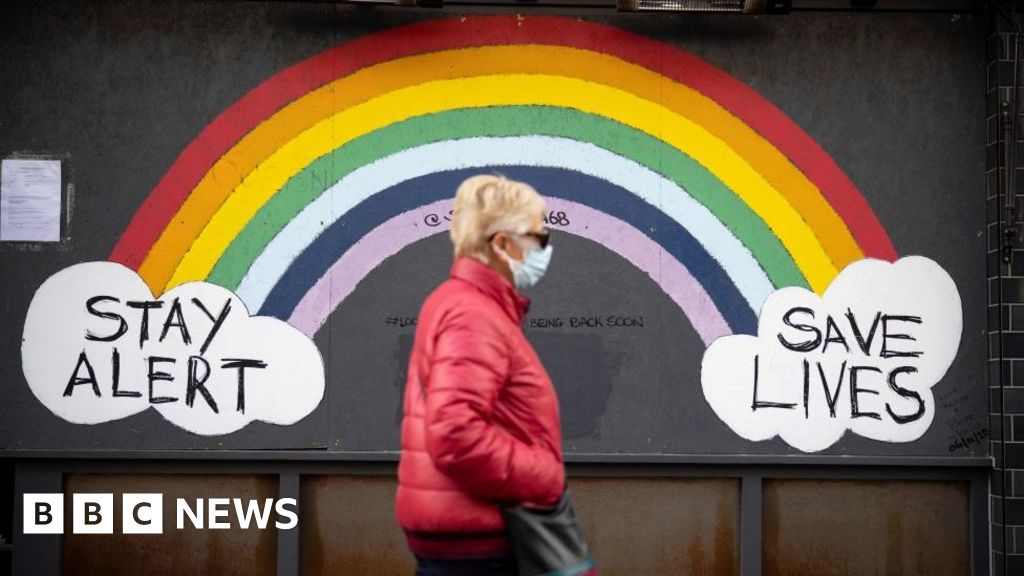Jobs
What is the UK Covid inquiry and how does it work? – BBC News

- By Jennifer Clarke
- BBC News
Image source, Getty Images
The UK Covid inquiry is holding its first public hearings in Belfast after earlier sessions in London, Edinburgh and Cardiff.
The inquiry has already heard from key politicians, government advisers, civil servants, scientific and medical experts and representatives of bereaved families.
What is a public inquiry?
Public inquiries respond to “public concern” about events. Established and funded by government, they are led by an independent chair.
Inquiries can demand evidence and compel witnesses to attend.
No-one is found guilty or innocent but conclusions are published. The government is not obliged to accept any recommendations.
At the time, Mr Johnson said the government’s response would be “under the microscope”.
Who is leading the Covid inquiry and how does it work?
The Covid inquiry began on 28 June 2022.
Image source, Piranha Photography
- resilience and preparedness
- decision-making and political governance in Westminster, Scotland, Wales and Northern Ireland
- the impact of Covid on healthcare systems across the UK
- vaccines, therapeutics and antiviral treatment
- government procurement and PPE
- the care sector
- test-and-trace
Future strands will consider:
- the government’s business and financial responses
- health inequalities
- education, children and young people
- other public services
There is no specific timescale for how long the inquiry will last but details of public hearings through until summer 2025 have been published.
A report on the inquiry’s first area of work is expected in summer 2024.
Scotland is also holding a separate inquiry which will take evidence from many of the same experts and politicians.
Who is giving evidence during the hearings in Northern Ireland?
Other witnesses include civil servants, experts and groups representing bereaved families, older people and those with disabilities.
Speaking at an event at the Ulster Museum in Belfast ahead of the hearings, inquiry secretary Ben Connah urged local people to tell their stories and help shape the final report’s recommendations.
Who gave evidence during the hearings in Wales?
Most of the hearings focused on the first wave of the pandemic.
The inquiry heard from 34 witnesses, including former First Minister Mark Drakeford, who likened then Prime Minister Boris Johnson during the crisis to an “absent” football manager.
Image source, UK Covid-19 Inquiry
A number of witnesses accused the Welsh government of issuing conflicting, contradictory and confusing guidance and criticised the:
- approach to personal protection equipment (PPE)
- treatment of care home residents
- decision to close schools
The cancellation of the Wales v Scotland Six Nations rugby match, in March 2020, 24 hours before it had been due to start, was referenced several times.
Kirsten Heaven, counsel for the Covid-19 Bereaved Families Cymru:
Andrew Kinnier KC, representing the Welsh government, said ministers accepted some policies had not worked as well as they had hoped but their decisions had been a “reasonable response to the unprecedented challenge to civil society”.
Who gave evidence during the hearings in Scotland?
The use of WhatsApp by Scottish government advisers and ministers was a key issue.
First Minister Humza Yousaf apologised unreservedly for the Scottish government’s failure to hand over relevant WhatsApp messages.
Image source, Covid Inquiry
Former First Minister Nicola Sturgeon admitted that she deleted messages from the period.
But she insisted that she did not use these informal channels to reach decisions or to have substantial discussions and that everything of relevance was available on the public record.
Ms Sturgeon was emotional during some of her evidence and appeared to fight back tears as she told the inquiry that “part of me wishes I hadn’t been [First Minister during the pandemic]”.
What did PM Rishi Sunak say to the inquiry?
Image source, HM Treasury
He also rejected earlier evidence from the government’s chief medical officer, Prof Sir Chris Whitty, and former chief scientific adviser Sir Patrick Vallance that they were not consulted about the policy.
What did Boris Johnson say to the inquiry?
The inquiry had already heard from government officials and advisers, academic experts and representatives of bereaved families, many of whom were extremely critical of his actions.
His comments were interrupted by protesters who were ordered to leave the room. Some members of bereaved families held up signs reading: “The dead can’t hear your apologies”.
He admitted mistakes were made and that “there were unquestionably things we should have done differently”.
He said he took “personal responsibility for all decisions made” but insisted that ministers had done their “level best” in difficult circumstances.
Who else gave evidence during the second round of public hearings?
He said he regretted the disastrous handling of his infamous trip to Barnard Castle during the first lockdown but denied his actions had damaged public trust.
Who gave evidence during the first round of public hearings?
The first public hearings, which considered the UK’s resilience and preparedness, took evidence from 69 independent experts and former and current government officials and ministers.
Sir Chris, his predecessor Prof Dame Sally Davies and Sir Patrick also gave evidence during the first hearings.







